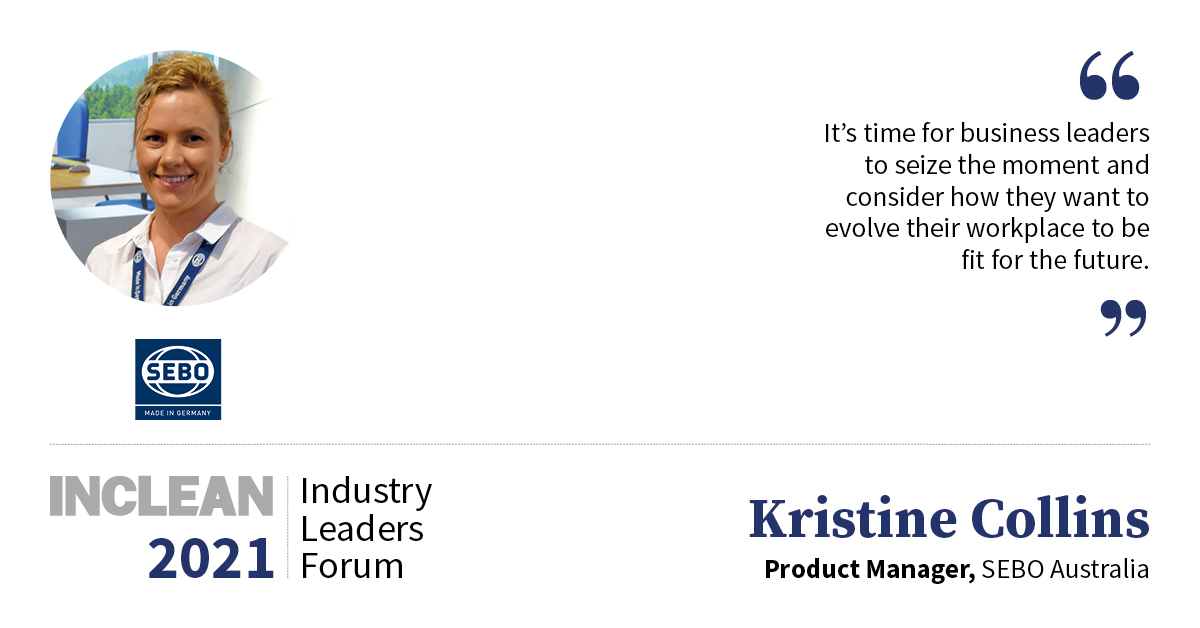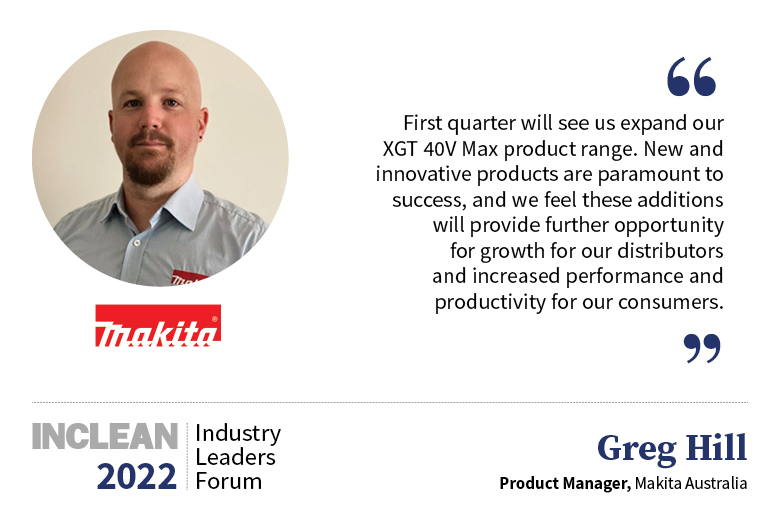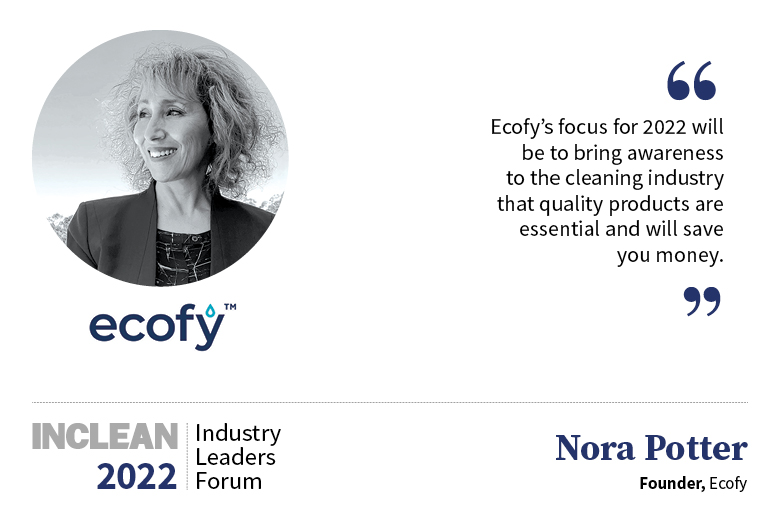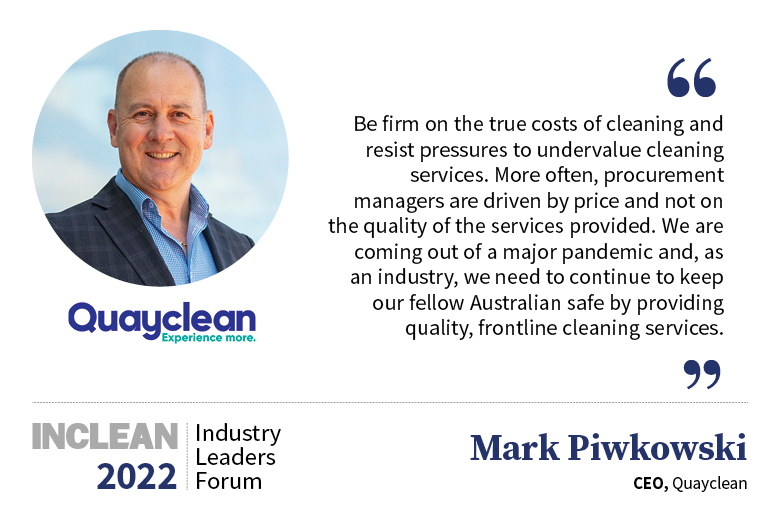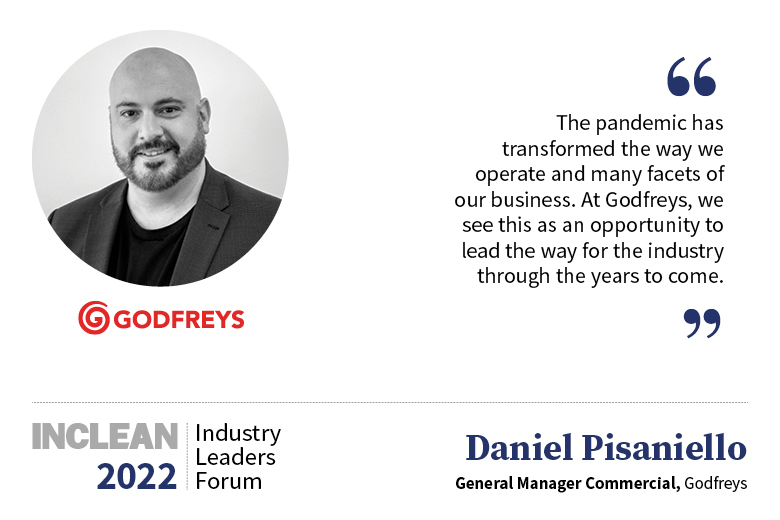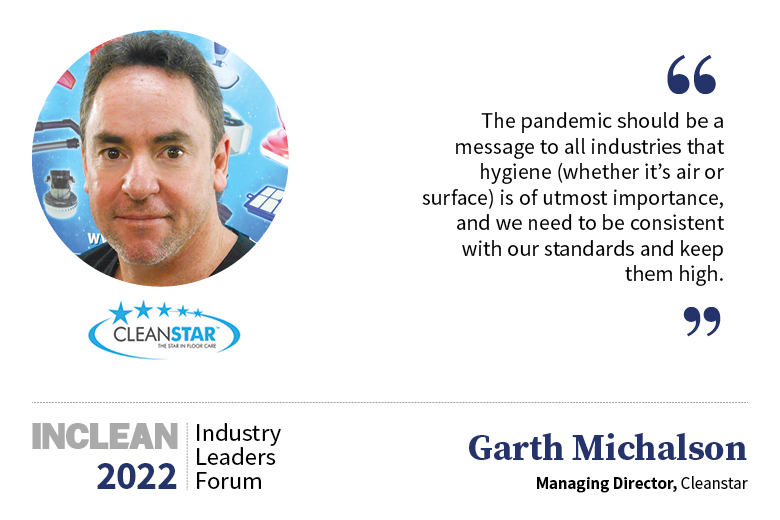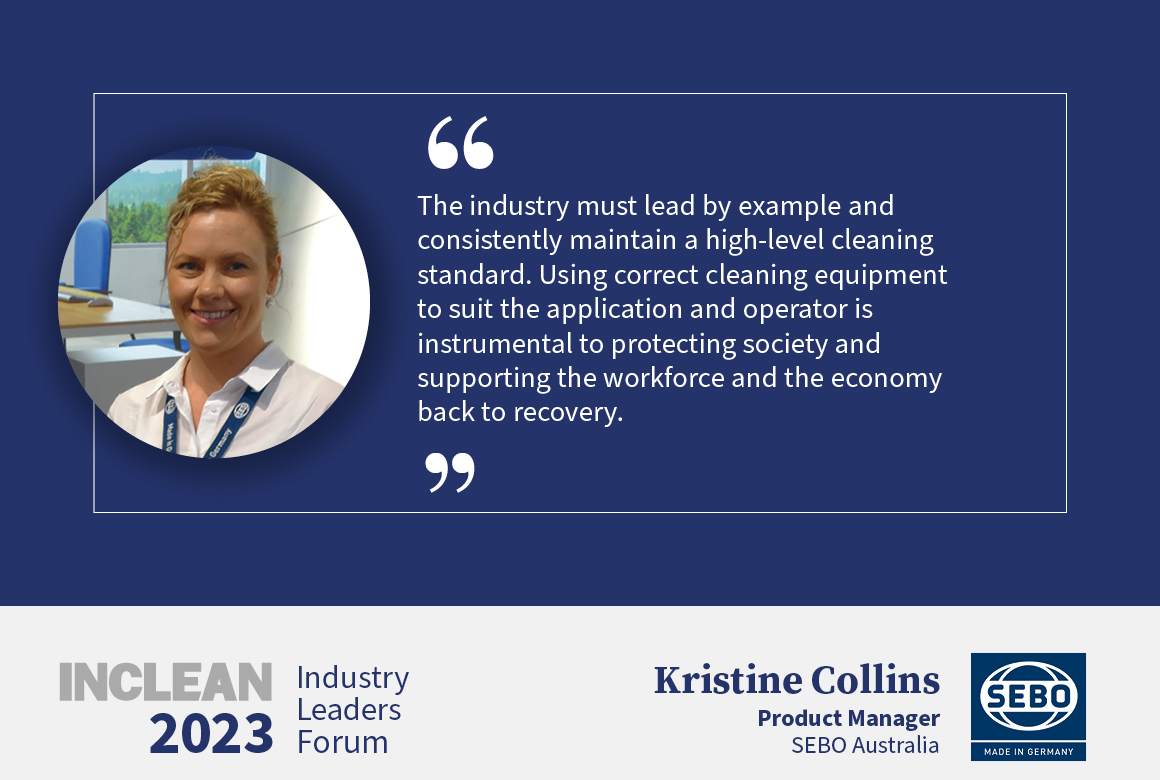
How was 2022 for SEBO? What were the highlights? What were the challenges?
We enjoyed showcasing the SEBO products at the ISSA Cleaning & Hygiene Expo in Sydney. Attendees reinforced with us that the SEBO Powerheads are a staple in any cleaning contractors’ fleet and the SEBO Uprights are regarded as a key piece of equipment in any carpet maintenance plan. Volume sales were good with improved B2C contact through our evolving omni-channel platform. Supply chain management was challenging with global disruptions, price rises, and market volatility.
What are the company’s main priorities for 2023?
Expanding our skill set and building a bigger and better team to service our customers. We have outgrown our current location and tailored premises are on the plans. Our ongoing commitment to the education of the cleaning industry and gold standard of floorcare cleaning and maintenance programs and equipment.
What do you see as the main challenges the market is facing in 2023?
Anticipating the economy. The cost of doing business is increasing, rising interest rates, utilities, staff, freight, etc. Reducing unnecessary costs where possible and one way for businesses to achieve this is by investing in the right equipment for the job and educate or skill the people employed to operate the equipment correctly.
How do you see the cleaning industry evolving in 2023?
The industry must lead by example and consistently maintain a high-level cleaning standard. Using correct cleaning equipment to suit the application and operator is instrumental to protecting society and supporting the workforce and the economy back to recovery. Best practice and sustainability efforts are an opportunity to increase margins. Some consumers are willing to pay more for sustainably and ethically sourced products.
Are there any key sustainability commitments/targets SEBO has made for 2023?
We are committed to maintaining best practices industry standards by supplying effective and efficient products and technologies to the consumer. Sustainable cleaning is a key component, but this must all begin at the origin – at the products’ manufacturing plant. SEBO’s manufacturing plant in Germany was designed all those years ago with the environment in mind.
Wooden pallets are reused in the distribution system as well as supplied to other companies for use within their distribution system. Paper and cardboard are either shredded and used for packaging or recycled. Plastic including soft plastic is recycled and cartridges and batteries deposited at collection points. Even deliveries are carefully planned to ensure our vehicles are filled to their maximum capacity and are running as economically as possible.
Manufactured in Germany, using locally sourced materials and components, which already ensures a smaller carbon footprint, every SEBO vacuum cleaner is made to last. This not only reduces waste and uses fewer resources, it saves customers money. What is impressive is the lengths the company will go to ensure every single element of a vacuum’s construction makes a minimal impact on the environment.
Not only is plastic recycled into new components, but the factory is completely self-sustaining with regards to electricity – and even makes contributions to the national grid when supply exceeds demand. A combined heat and power system recovers virtually 100 per cent of its primary energy source; as well as producing the electricity required to run machinery, the warm air created by its generator is used to heat the warehouse while engine coolant is pumped through the office radiators.
Water resources are also conserved at the SEBO factory. Rainwater is collected from the roof, then filtered and stored to be used in production and within the factory washrooms, saving the unnecessary use of treated drinking water. The factory and offices are designed to use natural light as much as possible, avoiding artificial lighting and the associated power consumption and working hours are scheduled to make use of daylight hours. This also creates a much better working environment.
SEBO has a highly skilled and dedicated workforce and management of SEBO are very aware of their social responsibility and the huge contribution the commitment and health of their staff make to the quality of SEBO products.
For SEBO, reducing the carbon footprint of a product starts in the initial design process. Part of the design brief is to ensure that they will pack into the smallest possible cartons and that the carton sizes ensure the maximum number of machines will fit onto a pallet. Most packaging is made from unbleached recycled cardboard with wastepaper from the offices being shredded and re-used for packing.
What’s the biggest challenge facing leaders today? What advice would you give to fellow leaders in the cleaning industry?
The biggest issue is attracting and retaining the right staff. Businesses need to encourage staff back into the workplace by establishing a modern and engaging environment where employees have the right tools and training, automated workflows, and flexible working conditions (where applicable). Understanding the new situations, you and your staff face as a result of the pressures of increased costs of living, the ongoing pandemic, etc. should be taken just as seriously as business-related considerations.
This first appeared in INCLEAN magazine.
Comment below to have your say on this story.
If you have a news story or tip-off, get in touch at info@incleanmag.com.au
Sign up to INCLEAN’s newsletter.
